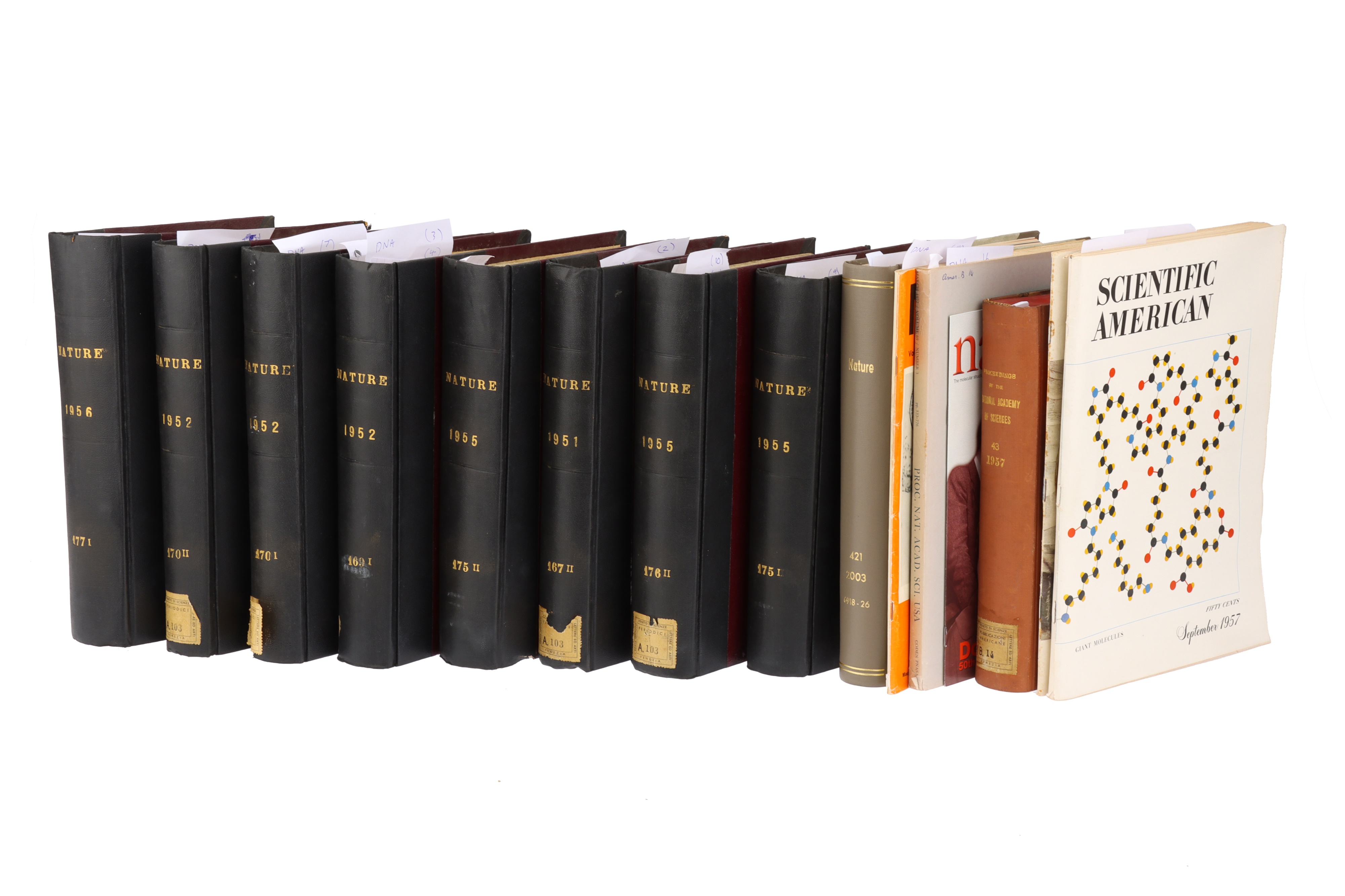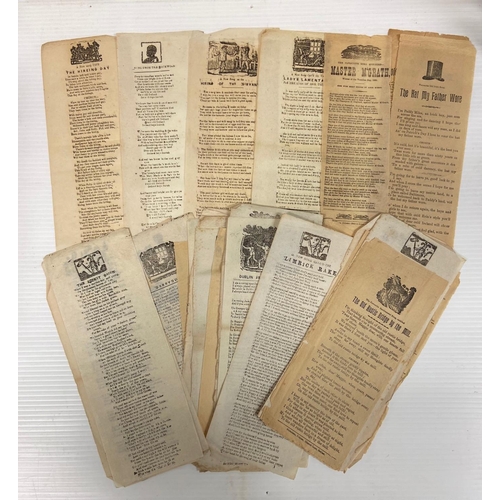An important collection of autographed working notes for the composer Richard Wagner's 1841 novella 'Wie ein armer Musiker in Paris umkarn' (How a Poor Musician Died in Paris) together with an envelope addressed in Wagner's hand and three 19th century musical manuscripts composed by the operatic soprano Malvina Schnorr von Carolsfeld. Fleeing from his creditors, Richard Wagner (1813-1883) spent the years 1839-42 in Paris attempting to establish himself as a successful composer. In order to survive financially and to also gain recognition amongst Parisian society and the musical world, he began to write a series of essays, poems, novellas and articles for musical publications. These included the Gazette Musical and the Dresdner Abendzeiting, for which 'How a Poor Musician Died in Paris' was published in 1841. This novella was partly autobiographical and it documented the struggles of a starving composer in Paris. It was a period of intense creativity for Wagner which coincided with turbulent social unrest and revolution in Europe. In the same year that he wrote this novella, he also composed his celebrated opera The Flying Dutchman. Handwritten on Wagner's personalised embossed notepaper, these extensive working notes are written in ink spanning several numbered double-sided pages. They are titled and signed in Wagner's hand although the writing of the text itself is attributed to an 'A Sewald'. It is possible that Wagner was dictating to a scribe or a fellow writer prior to its publication. There are several corrections which are made in the margins and these may possibly by Wagner. The notes are accompanied with the cut-down front of an envelope which is written in Wagner's hand and addressed to Herrn Carl Brand, Obermaschinist am Hoftheater in Darmstadt, bearing a franked Bavarian 3kr rose stamp, circa 1870. Carl Brandt (1828-1881) was the Darmstadt Theatre Stage Manager. The autograph is attributed to Wagner in ink on the front of the envelope, presumably by Brandt. The three hand written 19th century musical manuscripts are compositions by the Danish born Portuguese operatic soprano Eugenia Malvina Schnorr von Carolsfeld (nee Garrigues, 1825-1904). They are titled 'Walperga's letztes Lied', 'Und wüßten's die Blumen, de kleinen' (after Heinrich Heine) and 'Volkstedt aus bohenzollernschern Land', each is inscribed 'Comp von M Schnorr von Carolsfeld Garrigues' and one is inscribed Carlsruhe and is possibly dated the 25th April 1876. Malvina studied music in Paris and made her operatic debut in Breslau in 1849. While performing at the Karlsruhe Opera she met and become engaged to the famed tenor Ludwig Schnorr von Carolsfeld and they married in 1860. Richard Wagner looked to Malvina and Ludwig Schnorr von Carolsfeld to create the roles of Tristan and Isolde in his opera of the same title which premiered in 1865. Ludwig's association with Wagner was unfortunately short lived; he died suddenly, aged 28. Malvina retired from the stage following her husband's death although she continued to compose music and to teach singing in Frankfurt. With thanks to Kristina Unger (Library & Autograph Collection) of the Richard Wagner Museum, Bayreuth for her help in the research of this collection.
An important collection of autographed working notes for the composer Richard Wagner's 1841 novella 'Wie ein armer Musiker in Paris umkarn' (How a Poor Musician Died in Paris) together with an envelope addressed in Wagner's hand and three 19th century musical manuscripts composed by the operatic soprano Malvina Schnorr von Carolsfeld. Fleeing from his creditors, Richard Wagner (1813-1883) spent the years 1839-42 in Paris attempting to establish himself as a successful composer. In order to survive financially and to also gain recognition amongst Parisian society and the musical world, he began to write a series of essays, poems, novellas and articles for musical publications. These included the Gazette Musical and the Dresdner Abendzeiting, for which 'How a Poor Musician Died in Paris' was published in 1841. This novella was partly autobiographical and it documented the struggles of a starving composer in Paris. It was a period of intense creativity for Wagner which coincided with turbulent social unrest and revolution in Europe. In the same year that he wrote this novella, he also composed his celebrated opera The Flying Dutchman. Handwritten on Wagner's personalised embossed notepaper, these extensive working notes are written in ink spanning several numbered double-sided pages. They are titled and signed in Wagner's hand although the writing of the text itself is attributed to an 'A Sewald'. It is possible that Wagner was dictating to a scribe or a fellow writer prior to its publication. There are several corrections which are made in the margins and these may possibly by Wagner. The notes are accompanied with the cut-down front of an envelope which is written in Wagner's hand and addressed to Herrn Carl Brand, Obermaschinist am Hoftheater in Darmstadt, bearing a franked Bavarian 3kr rose stamp, circa 1870. Carl Brandt (1828-1881) was the Darmstadt Theatre Stage Manager. The autograph is attributed to Wagner in ink on the front of the envelope, presumably by Brandt. The three hand written 19th century musical manuscripts are compositions by the Danish born Portuguese operatic soprano Eugenia Malvina Schnorr von Carolsfeld (nee Garrigues, 1825-1904). They are titled 'Walperga's letztes Lied', 'Und wüßten's die Blumen, de kleinen' (after Heinrich Heine) and 'Volkstedt aus bohenzollernschern Land', each is inscribed 'Comp von M Schnorr von Carolsfeld Garrigues' and one is inscribed Carlsruhe and is possibly dated the 25th April 1876. Malvina studied music in Paris and made her operatic debut in Breslau in 1849. While performing at the Karlsruhe Opera she met and become engaged to the famed tenor Ludwig Schnorr von Carolsfeld and they married in 1860. Richard Wagner looked to Malvina and Ludwig Schnorr von Carolsfeld to create the roles of Tristan and Isolde in his opera of the same title which premiered in 1865. Ludwig's association with Wagner was unfortunately short lived; he died suddenly, aged 28. Malvina retired from the stage following her husband's death although she continued to compose music and to teach singing in Frankfurt. With thanks to Kristina Unger (Library & Autograph Collection) of the Richard Wagner Museum, Bayreuth for her help in the research of this collection.













Try LotSearch and its premium features for 7 days - without any costs!
Be notified automatically about new items in upcoming auctions.
Create an alert